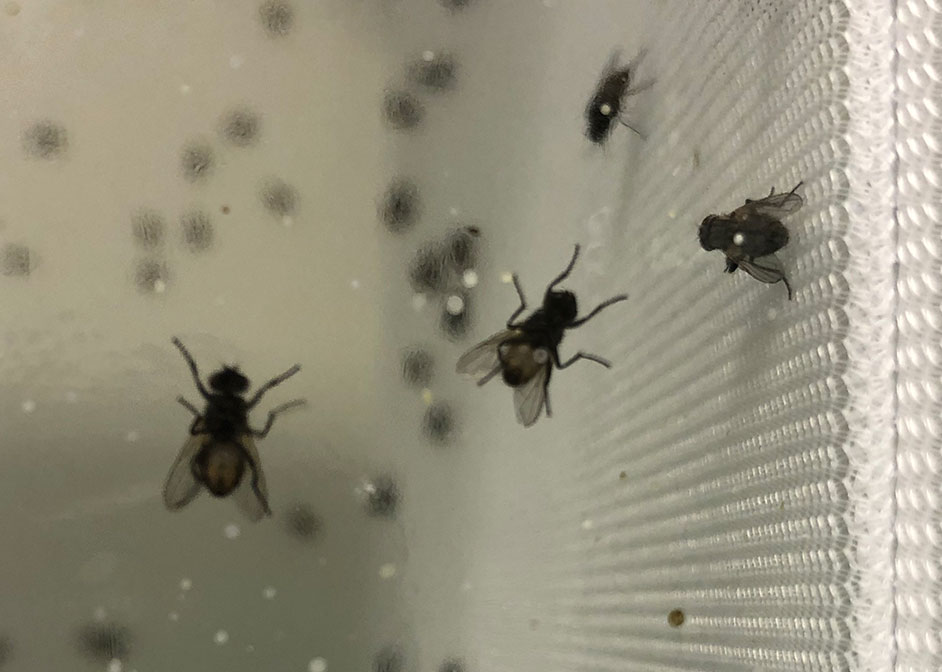Richard Meisel’s Lab Published Their First-of-its-Kind Study in Evolution Letters
In a new paper in Evolution Letters, Richard Meisel and his research team for the first time identified a sex chromosome in the house fly, Musca domestica, that is associated with both a behavioral preference for temperature and a physiological tolerance for temperature. Prior to their discovery, no one had found this preference and tolerance associated with a sex chromosome in an animal.

Meisel, associate professor of biology at the University of Houston’s College of Natural Sciences and Mathematics, and his team determined that the genetic basis of the fly’s thermal preferences is a Y chromosome among male flies in the northern U.S. east coast and a different Y chromosome found among male flies in the southern U.S. east coast.
They hypothesized the males with southern Y chromosome would survive better when it is hot. Conversely, the males with a northern Y chromosome would survive better in a colder climate.

Biology Ph.D. student Kiran Adhikari took the flies, measured how long they could survive in 136 degrees Fahrenheit and confirmed their hypothesis.
“Finding genetic variation that affects heat and cold tolerance, is not something new,” said Meisel. “People have found this before. What’s new is that we’re finding it associated with a sex chromosome.”
The team was then curious to find out whether the physiological response that Adhikari measured would be similar to a behavioral response.

Postdoctoral researcher Pablo Delclos set up an experiment where one end of metal was in a heat bath at 99 degrees, the other in an ice bath at 63 degrees. He found that the flies with a northern Y chromosome preferred the cool, and flies with the southern Y chromosome preferred the warmth. This confirmed the lab’s hypothesis regarding behavioral preference for temperature.
Adaptability in Climate Change
Meisel and his lab’s findings on the congruence between physiological and behavioral preferences could be evidence that certain genetic variation in animals would best adapt to potentially changing climates and warming environments.
“For most plants and animals, the problem is adapting,” Meisel said. “You either move, or your range changes, and you adapt. There’s a big question at the intersection of climate change biology and conservation biology, at what capacity do organisms’ populations have the ability to adapt to change in environment? Do they have the genetic variation that will allow them to adapt?”
An animal could survive better at warmer temperatures, but its preference may be cooler temperatures. “That sort of disagreement between the effects can impede adaptation to climate change.”
Heavy Undergraduate Involvement
Adhikari, one of the co-authors, said the study is a result of years of hard work,
and it is rewarding to have the paper published in an esteemed journal.
“Working with Dr. Meisel is always fun,” Adhikari adds. “He is very supportive and
involved, but at the same time, lets us be independent and explore our ideas. I had
a great time working with Dr. Meisel and Dr. Delclos on this project. I also had fun
working with the undergraduates who helped with collecting data and rearing flies
for us.”
Delclos reiterates the joy of working with inquisitive undergraduates. “It was particularly rewarding to see students with a wide array of career interests focus and contribute to this set of basic scientific research,” he said.
Six undergraduate students are listed as co-authors on the study. They are Oluwatomi Hassan, Jessica Cambric, Anna Matuk, Rebecca Presley, Jessica Tran, and Vyshnika Sriskantharajah, who is now at the University of Texas Health Science Center School of Biomedical Informatics. Three undergraduates are also listed in the acknowledgements section: Chantalle Vincent, Tin Nguyen, and Mandy Cao.
- Rebeca Trejo, College of Natural Sciences and Mathematics